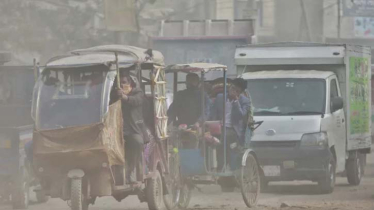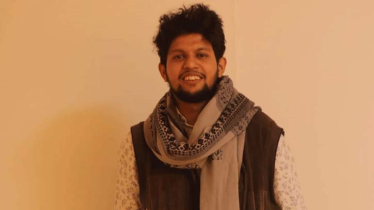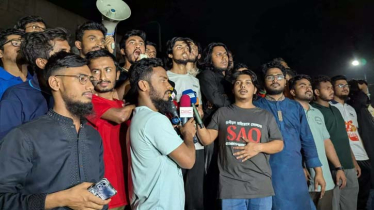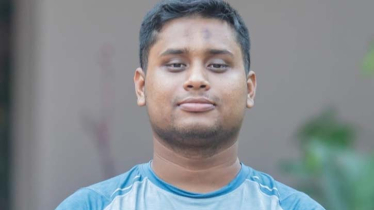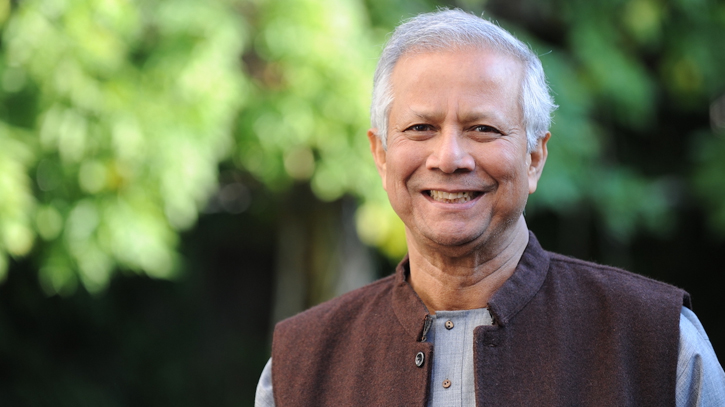
Photo : Collected
Seeking some time to address people's long grievances, Chief Adviser Prof Muhammad Yunus has said they have to resolve it systematically overcoming the difficult situation.
"Look this is 15 years of your grievances. We cannot solve it in 15 days. Give us some time so that we can go back. You have a very difficult situation and we have to resolve it so that it's done systematically," he told NPR in an exclusive interview.
National Public Radio (NPR, stylized as npr) is an American public broadcasting organisation headquartered in Washington, D.C., with its NPR West headquarters in Culver City,
Asked whether he can redirect people to focus on reform rather than revenge, the Nobel Peace laureate said revenge period was only a couple of weeks maybe.
"But then normalcy started coming back so we are running the country. But there are demonstrations, not revenge demonstrations," he said.
The chief adviser said most of the demonstrations are about demanding their pay rises, demanding their jobs, which they were fired from before by the regime.
"So they said, we are mistreated by the past government and we lost our jobs for nothing – because we happened to belong to another political party," he said, adding that everybody is trying to settle their scores because they were deprived.
"We were trying to convince them," Prof Yunus said.
Asked about different options on election time frame, the chief adviser said people are throwing out these numbers - how many months, how many years as they feel are needed.
"Some say it should be done quickly because if you go longer and longer, you'll be so unpopular and everything will be messed up. Some say no, you have to finish the reform. So you stay this long period because we don't want to get to Bangladesh 2.0 without fixing everything. So this is the debate going on," he said.
The questioner said it is almost like he is talking about an entire rebuilding of civil society.
In reply Prof Yunus said, "That’s precisely what version 2 means. We don't want to go back to the old style. Then what is the meaning of giving all these lives? It has no meaning because everything that we did, we destroyed everything. So we have to begin to build a new one."
Prof Yunus also said it is very exciting. "You look at the negative. I look at it in a very positive way. I said this is the greatest opportunity this nation got. Never, ever, all these people, the country is unified on one thing: We need change."
Asked whether he will see Bangladesh become the country that he hoped it will be in his lifetime, Prof Yunus said, "Not the ultimate. But I will be very happy, it’s on the way. Institutions are right. Policies are right."
He said young people are committed to changing the world that they belong to and they play a role within the country and a global role.
"When we talk about climate change, we are the victims of climate change. But we have to work together," Prof Yunus said.
The chief adviser said he always gives importance to the youth because they are the ones who will be building the future and they should be in the leadership position anyway, because this is the planet they have to inherit.
"You mentioned I'm 84. I don't have a long part ahead of me, but they have their whole life ahead of them," he told the interviewer.
Prof Yunus saw the trajectory of his life change after student-led protests this summer resulted in his installation as the interim leader of Bangladesh.
Former Prime Minister Sheikh Hasina fled to India in early August, as tens of thousands of demonstrators stormed her residence protesting against her leadership and a job quota system that favoured certain groups.
Yunus saw these events unfolding from about 5,000 miles away in Paris, where he was attending the summer Olympics.
Hours after Hasina’s ouster on August 5, Prof Yunus received a phone call. He was asked to serve as chief adviser to the interim government.
It was a “very strange turn of events,” he told NPR in New York City. After Yunus spoke at the UN General Assembly, he sat down with NPR’s Michel Martin.
Prof Yunus is known for founding Grameen Bank and pioneering small loans for low income people as a way to fight poverty.
The following is rest of the interview.
NPR: When we talked this past summer, you were on trial on corruption charges, and now here you are representing Bangladesh on the world stage. That is some turn of events. Are you surprised to find yourself in this position?
Prof Yunus: A very strange turn of events. Before I was sworn in as a chief adviser, I was in Paris trying to see if I go back, I'll be arrested, because she(Hasina) will be angry at me and put me in jail. So I was thinking of delaying my return. And suddenly I got a phone call from Bangladesh that now she has left. We want you to be the head of the government. That was a big surprise.
NPR: What went through your mind when you got that phone call?
Prof Yunus: Whether I should get involved in running the country at all. It’s a very difficult political situation. But when the students called me up and explained what the situation is, finally I said, “Yes, you have given lives for this. If you can give lives, I can remove all my other considerations. I can be of your service. I'll do that.”
NPR: And when you say you've given life, you were not exaggerating and it was not a metaphor.
Prof Yunus: No, it’s not a metaphor. People die. Nearly a thousand young people died, stood in front of the gun to take bullets. Literally, young people came and sacrificed themselves. When they are coming out of their homes to join the demonstrations, they’re saying goodbye to their parents. They're saying goodbye to their siblings; ‘I may not come back.’ That's the spirit in which the whole thing happened. And finally, it was so unbelievable. The Prime Minister decides to leave the country because the whole mob is coming towards her home.
NPR: On the one hand, these demonstrations led to the departure of this wildly unpopular and by some accounts corrupt leader. But in those chaotic first days, there were attacks against Ahmadis and Hindus. Some of it was related to their loyalty to Sheikh Hasina’s party. Some of it seemed to be just simply attacks against minorities. Those have subsided. But since then, there have been more attacks, this time on Sufi mosques, and according to our reporting, there has been more than 20 vigilante killings, murders by mobs of people since she was ousted. Why is this happening?
Prof Yunus: People are in the mood for revolution. So this is a revolutionary situation. They were killed. So they are looking for people who made their colleagues die. So people were attacking the followers of the party headed by Sheikh Hasina. When you say minority community being attacked, that minority community, particularly Hindu community, was associated with her. So you cannot distinguish whether they were attacked because they're followers of Sheikh Hasina or they were attacked because they are Hindu. But they were attacked, that's for sure. But then we took over the government and tried to bring peace. I kept telling everybody that we may have differences of opinion. That doesn't mean we have to attack each other.
Messenger/Disha





